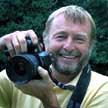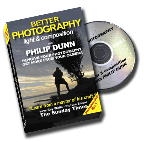After some considerable prodding, I promised that from time to time I would write about how I got started in photography, and some of the stories behind my career. So here goes, this is the first one...
I was fourteen years old when I decided I wanted to be a press photographer. I’d seen a photograph on the back page of Dad’s newspaper. They’d call it a ‘light bulb moment’ these days, but then, way back in the early 60s, something much more powerful than your average 40 watt bulb was ignited inside me. I knew at that moment what I wanted to do with my life.
The picture showed the photographer in the cockpit of one of the RAF Red Arrows jets. The camera, with a wide-angle lens, was in the front of the cockpit looking back and it showed not only the man who took the shot, but the tight formation of aircraft behind. It dawned on me that that man was not in the Air Force, yet there he was flying with the Red Arrows. That was the life of a press photographer, and that was what I wanted to do. Years later when I was a staff photographer on The Daily Express in Fleet Street, I met that photographer. His name was Ron Burton, and he became a friend. He was enormously pleased to hear that his picture had inspired a 14 year old kid to set off on a career in photography.
That very evening I announced my intentions to Mum and Dad.
“I want to be a press photographer. I don’t want an office job, and I really don’t want to work in a dirty old factory like Dad. I’d like to get out and about, and some of those London photographers get sent all over the world taking photos. Just you look at the pictures in Mirror. That’s what I want to do.”
Mum looked doubtful and I half expected a dressing down for saying what I had about Dad’s job at the diesel engine factory – it put the food on the family table after all. But Dad himself chipped in here. He paused from filling his pipe with the richly-scented mixture of St. Bruno and thick twist that bulged in his well-worn leather tobacco pouch and looked up.
“Now that’s what I call a proper ambition – see the world at someone else’s expense, and I don’t mean in the bloody army, either, square bashin’ and peelin’ spuds. Well paid, too, I’ll bet. You might even be famous and get your name in the paper one day. You give it a try son, I’ll write the letter for you if you like.”
That was it. Done and dusted - to Dad it was now all perfectly clear cut. With his total confidence in the talents of his only son it would be inconceivable that I would be turned down for a job as chief photographer on a top London daily newspaper. Not, that is, once he had written a letter asking the editor to give me a job. But then, Dad was also very sure of his own letter writing talents.
According to Dad’s bullet-pointed letter, those newspaper editors would be missing a golden opportunity, in fact they may even be negligent in their duty to their readers, if they did not immediately offer me a job.
When the letter was finished it was decided something was needed to illustrate my ability as a photographer. We hit upon the idea of enclosing with each letter a contact print of some of the snaps I’d taken with my new camera, an Ilford Sporty. The photos showed next door’s ginger cat, sat on the coping stones of the wall that separated the back yards of our houses. The cat had feathers stuck to his whiskers and a very satisfied expression on his face. At its feet, balanced across the apex of the soot-blackened wall, was the bedraggled corpse of a freshly-killed house sparrow. The Daily Mirror in particular was always keen on animal stories, so surely the editor would see from the evidence of this picture that I was an animal photographer of some distinction. These two-and-a-quarter inch square, black and white snaps of next door’s cat made up my entire ‘portfolio’.
I copied out the letters in my own hand, popped a contact print into each envelope and rushed down to the post office in the centre of town. Strangely, every editor wrote back within a week explaining that there were no photographer’s jobs available just then, but one of them did suggest helpfully that if the sparrow had been a little more chirpy he might even have considered using the picture in his paper. He also said it would be a good plan to get some more ‘hands-on’ experience with a camera before applying for a job in Fleet Street; perhaps on a local newspaper as an apprentice.
So Dad got busy again with his pen, paper and dictionary. He composed another letter to be sent to every weekly newspaper in a twenty mile radius of home. The replies came in dribs and drabs over the next few weeks, but each brought the same depressing news – there was still no prospect of a job when I left school in a few months time.
Right,” said Dad, who was beginning to take this as a personal slight on his letter-writing abilities, “Perhaps it’s more of a case of ‘not what you know, but WHO you know’. There are plenty of jobs like that, so maybe we should try and think of someone who might be able to help. We need what’s called a ‘contact’”.
He was absolutely right of course. I needed an introduction, a personal contact who could smooth the way a little; open a door just enough to get my foot in. With a solitary ‘O’ Level in art and a profound loathing of school, it was obvious that I had no future as an academic. Photography seemed to be the only job that would offer me the life I dreamed about. It was a job that had everything; travel, excitement, fame, the lot, and, as far as I could understand, you didn’t need to pass any exams to get to the top. My mind was made up, my heart was set on it; I simply had to become a press photographer when I left school after my fifteenth birthday. But after so many disappointing replies to all those letters, hopes were definitely beginning to flag. No one in the family knew anyone even remotely connected with journalism, photography or newspapers, perhaps it was hopeless after all.
Next - sometime soon - how I made my first 'contact'
26 Mar 2008
A career in photography - 1
Subscribe to:
Post Comments (Atom)


1 comment:
Thats fascinating Philip do you think it is possible to make a career in photography these days without a degree in photography or other qualifications?
Post a Comment